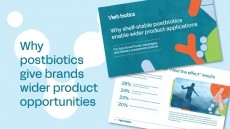Success in microbiome testing requires expert support and realistic expectations

Companies should also promote retesting to enable consumers to see real outcomes of interventions to build brand credibility, according to expert panellists speaking during NutraIngredients’ Probiota event last week (7-9th February).
Microbiome testing challenges
Afif Ghannoum, co-founder and CEO of microbiome R&D company Biohm, stressed the significant challenges with widespread microbiome testing.
“It’s not a cheap thing,” Ghannoum pointed out. “Consumers are used to pregnancy tests that cost three dollars and are instant. And even with the targeted recommendations following a microbiome test, they’re not as targeted as something like a pregnancy test.
He said that combining microbiome testing with tailored products helps with continued customer engagement, which can lead to retesting by consumers to track progress.
He urged brands to provide a nutritionist to deliver follow-up advice to enable consumers to feel continuously supported, thereby adding value.
Cecilia Shiroma Kian, global product manager for flavour manufacturer Givaudan, noted that consumers often prefer to take their test results to their own healthcare professional to infer the results.
“But the majority of GPs are not capable of doing this,” she stressed.
Price pointed out that this challenge could be overcome with the implementation of technology and AI support services, enabling the customer to gain further insights.
Dr Nathan Price, chief scientific officer at Thorne HealthTech, said the brand’s microbiome testing kit, using a wipe, was very popular thanks to its ease of use.
Regarding the importance of retesting, he said: “We do have a segment of people that are hardcore about monitoring the effects of interventions and are wanting more science. And they will be retesting probably every six months to a year. But for the mass market, there are definitely consumers coming in as more as a one off.
“Our tests always come with recommendations following the results. People want a solution. I do love the notion of a retest, as it's beneficial on both sides - It builds credibility with our customers and says ‘we’re going to help you’, and the customers can retest to see if it did actually help.”
He added that retesting is also very beneficial to build the company’s dataset.
Targeted communication and altering expectations
Kian explained the company conducted segmentation research which revealed three key consumer attitudes towards health which brands should target.
“One group are the reactors, who are the busy people wanting to have good health but don’t have time to do the research and are conscious of their budget,” Kian said. “The proactive types are those who are wearing devices, measuring their microbiome and up to date with the latest scientific developments and new products. In the middle we have the harmonisers who have more of a holistic approach to health.”
“So you need to be conscious of who is actually your target and start developing targeted communications. Because otherwise you will be having perhaps a 100% success rate but for only 20% of the market,” she emphasised.
Price argued brands should also focus on promoting realistic expectations.
“The problem is the lens that you are viewing testing through,” he noted. “If you’re viewing it as a complete solution to sorting your health out, it really needs to be seen more as nutritional recommendations provided by a nutritionist that can help you get closer to your health goals.”
He added that, in general, consumers aren’t interested in the specific bacterial strains present in their microbiome, but rather what they can do to improve their health.
“But a lot of this comes down to if we can show that the interventions work, and if they can see this health improvement in the short term.
“If they get a report with tonnes of data that doesn’t impact health, they aren’t getting what they really cared about.
“But if you can take the information and make it useful and solve the problem, then they will be committed,” he explained.













